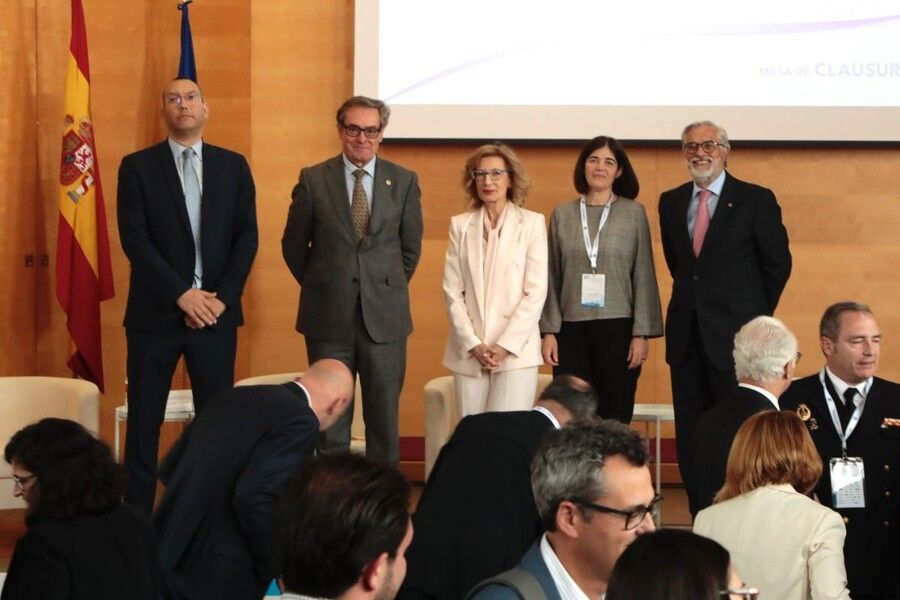Shipbuilding industry needs to double the number of engineers in the next five years

The opportunity of offshore wind and the fishing vulnerability to diesel price, other topics on the final day of the congress of the Association of Naval and Oceanic Engineers of Spain
The Association of Naval and Oceanic Engineers of Spain closed the 63rd edition of its congress by proposing a future objective to guarantee the future of naval engineering to face the challenge represented by the lack of professionals: it is necessary to attract young talent by at least to duplicate the number of naval engineers for the next five, as recalled by the president of AINE, Diego Fernández Casado, and the dean of COIN, Pilar Tejo Mora-Granados, at the closing of the meeting, held at the Higher Technical School of Naval Engineers in Madrid. During the meeting, maritime sector was claimed as a strategic lever for the country, given its ability to lead the renewable energy generation and promote technological development, to face the challenges raised by decarbonization or the current complicated geopolitical situation.
During the meeting it was also highlighted that naval engineering is “an unquestionable source of opportunities.” For the organization, the most obvious was the one raised by Julio Muñoz, head of the Connection Services department at Redeia: “Offshore wind generation is a unique opportunity for Spain because it will take advantage of the progress made in land-based generation in all sectors.”
Idea echoed by Germán Carlos Suárez Calvo, president of Aliminia group (Astican/Astander): “The great opportunity is to resolve the challenges that will arise by becoming pioneers in the installation of floating sea wind platforms” and encouraged the sector “to place Spain at the top first to launch a floating offshore wind farm.”
For the merchant it is also a “moment of opportunity,” as explained by José María Torre Martínez, fleet director of Ibaizabal, who agreed that “shipping companies are responsible for only 3% of emissions; “We are the most efficient transportation and now we can demonstrate that we can make an adequate energy transition.”
Diesel price, the fishing weakness
The other side of the coin is represented by the increase in fuel prices, an aspect mentioned by Javier Touza, President of the Vigo Shipowners' Cooperative. “The current geopolitical conflicts put the fishing fleet at risk due to vulnerability and high dependence on fossil fuels, and hence the urgency of the energy transition until reaching neutrality in 2050,” he stated.
Energy costs before the invasion of Ukraine represented 13% of total operating costs. A year later, they reached 35%. An increase that directly affects the European fishing fleet which, in the words of Touza, “has gone from obtaining 200 million profits before the invasion of Ukraine, to registering more than 400 million losses in 2022.” “10 cents increase in diesel represents a loss of profit of 185 million euros,” he said.
The maritime sector will meet again next year in Gijón (Asturias) from the 2nd to the 4th of April 2025, at the 64th edition of the Naval Engineering and Maritime Industry Congress.
(Source: Industrias Pesqueras)

